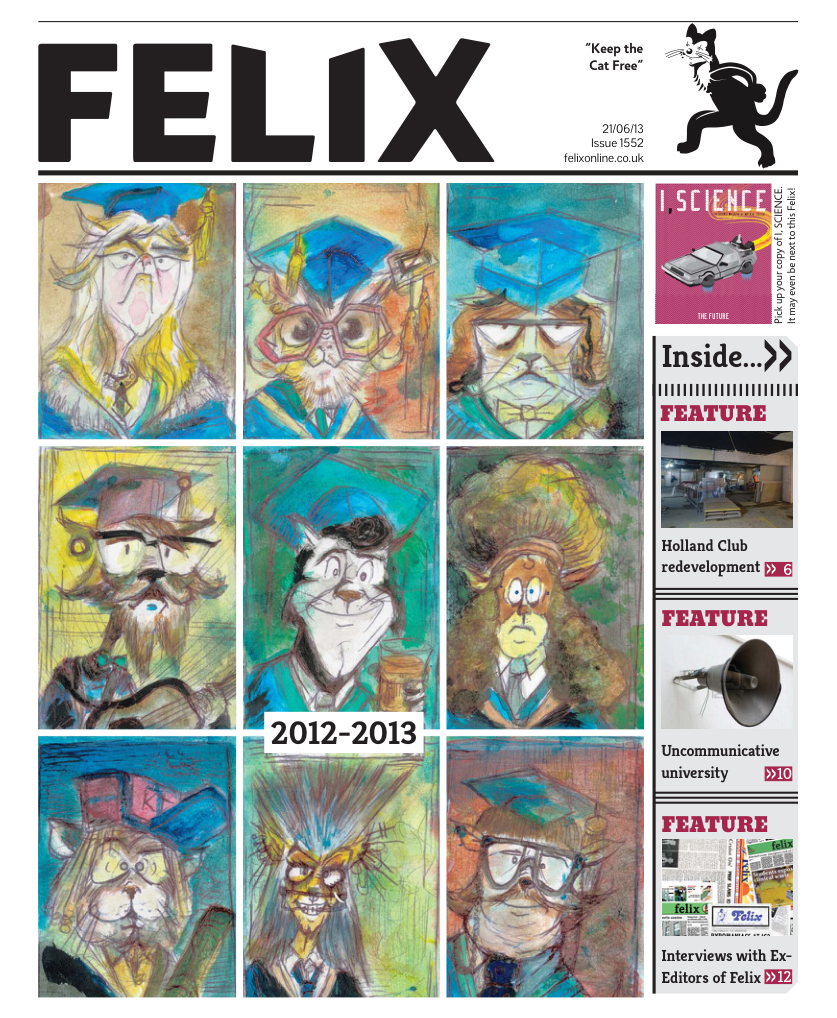King of the Artistic Jungle
Alejandro Torrado Pacheco looks at a promising debut novel

Jonathan is the King of the Jungle. A small jungle, nestled in Central London, with its population of drunks and crack-heads, smack-heads and prostitutes, and the office girls eating their lunches in the Sun. Once a painter and a major figure in the London art scene, Jonathan is now a park-keeper and professional “tramp shit picker-upper”. He spends his days taking care of the trees and flowerbeds, making sure the garden is clean and that its gates open and close on time. Most definitely not the life of an artist. It is clear early on that he despises his previous life, he speaks bitterly of it and of other painters and writers.
Mediocrity. Most of us know that feeling: that however good you are at something you know that someone, somewhere is indefinitely superior, absolutely brilliant at it, in that particular way that is both apparent after just a glance and yet undefinable. Unless that one is you, of course. Mediocrity glorified: this would be the two-word definition of the contemporary art scene for Jonathan. His arrogance fits his persona, as we learn that he was indeed one of the best, if not the best, the King. Even after four years of silence he is recognised and admired when he makes an appearance in the art circles that his former college classmates frequent.
It is puzzling to think that, in such conditions, he should hate that environment so much, to the point of retiring to a life that offers him no satisfaction. The question “Why?” spontaneously crops up in the reader’s mind repeatedly, and mostly remains unsatisfied. Silkwood manages to draw a powerful character that we can only fully appreciate in his entirety after the last page is turned. Then, a complex human being appears; and his sad, bitter story. Despite all his boasting, cutting humour and strong opinions the picture of Jonathan that emerges is one of deep insecurity; not the superficial kind, but the struggle of a man unable to hold on to anything good that he possesses.
The rare moments of human compassion and kindness in the book, very powerfully delivered by Silkwood, involve people at the fringe of society; the author manages, through Jonathan’s eyes, to paint a dark world, almost without us noticing.
If it is not art it is love, and the prospect of a life spent with a woman and their child. The artist too-brilliant-to-risk-mediocrity prefers anonymity (a word that comes up a lot) and “the shit end of the stick”. He doesn’t want to be part of the fake world of private views and glossed up appearances; he wants to find “in the mundane the fantastic”; he chooses the low-lives instead, and he ends up one of them, drunk all day every day, losing contact with his people, his friends, his love and his child. One cannot help but think that the scorn Jonathan feels is unjustified. It is more of an internal fight than anything else. His lonely bitterness and self-destructive impulses take over completely as he tries to erase himself from the world. And just when he is about to pull himself out of it, someone else does the job for him.
It would be unfair to reduce the novel to this psychological reading. It is classically post-modern, attacking the superficiality and attachment to appearance of modern society. The rare moments of human compassion and kindness in the book, very powerfully delivered by Silkwood, involve people at the fringe of society; the author manages, through Jonathan’s eyes, to paint a dark world, almost without us noticing. The story is told slowly, in a brusque and direct way. The use of the second person engages the reader and the book feels like a confession, a painful trickle of memories and feelings.
The “King” is not without flaws, such as the lack of development of some of the themes introduced, and the predictability of the ending, which felt as inevitable as it was foregone. It remains however a great effort by a young author. As the first volume of a trilogy, King of the Jungle certainly holds good promises for the following books, where hopefully the room for improvement available will be made use of.









